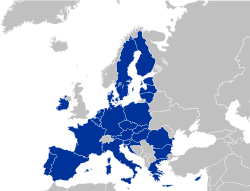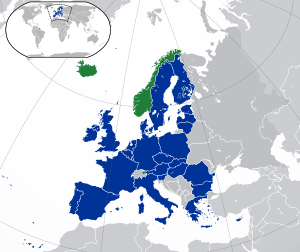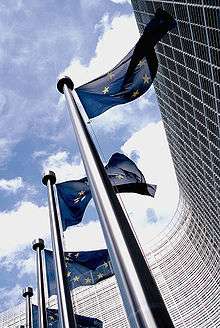Directorate-General for Energy
The Directorate-General for Energy (DG Ener), also internally the abbreviation ENER is used, is a Directorate-General of the European Commission. The DG Ener is in operation since 17 February 2010 when it was split from the Transport DG[1] (it had been merged with Transport since 2000).
Mission
DG ENER is focused on creating a competitive internal energy market to lower prices, to develop renewable energy sources, to reduce energy dependence and to reduce energy consumption.
Resources
The Directorate-General for Energy, based in Brussels, reports to Miguel Arias Cañete, European Commissioner for Energy and Climate Action and to Vice President of the Commission Maroš Šefčovič, responsible for Energy Union. The Directorate-General was headed by Phillip Lowe from March 2010 and by Dominique Ristori since January 2014.
Structure
The Directorate-General is made up of 6 Directorates (two of which deal with EURATOM issues), and the Euratom Supply Agency.
Electromobility
The Green Car Initiative (GCI) is included in the European Economic Recovery Plan (EERP) presented November 2008. Electrification of transport (electromobility) figures prominently in the GCI. DG TREN is supporting a large European "electromobility" project on electric vehicles and related infrastructure with a total budget of around € 50million as part of the Green Car Initiative.[2]
See also
- Energy policy of the European Union
- EURATOM
- European Commissioner for Energy
- Green procurement
External links
References
- "European Commission - PRESS RELEASES - Press release - Commission creates two new Directorates-General for Energy and Climate Action". europa.eu.
- "Electric vehicles - Transport". europa.eu. Archived from the original on 19 March 2011.




